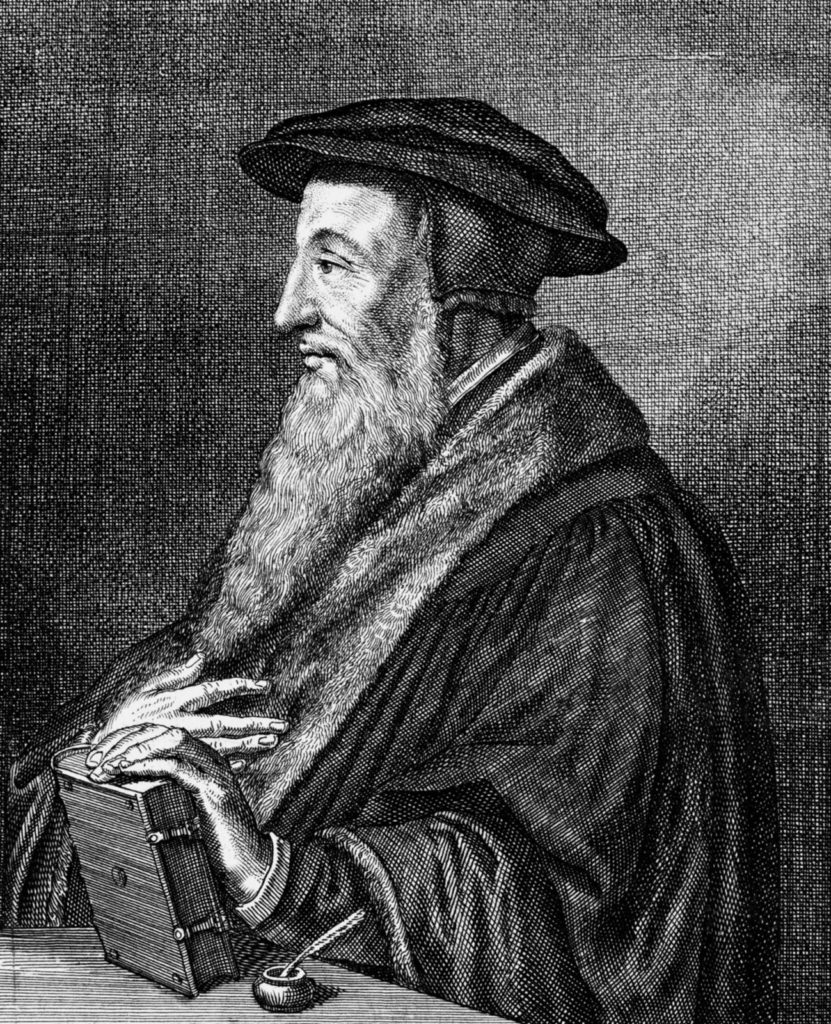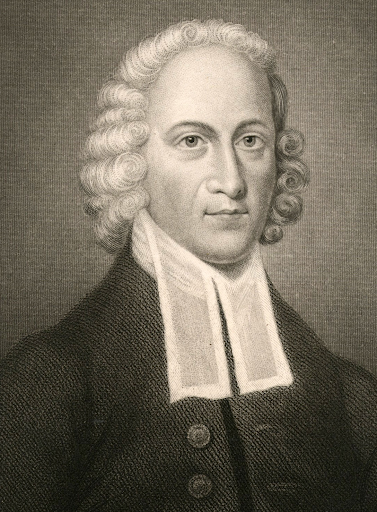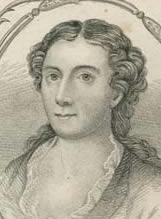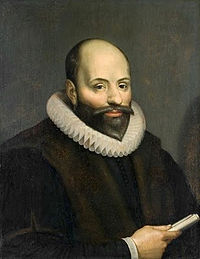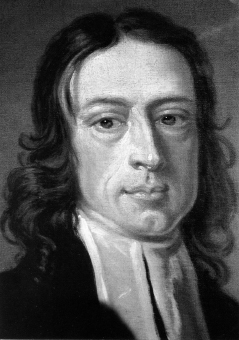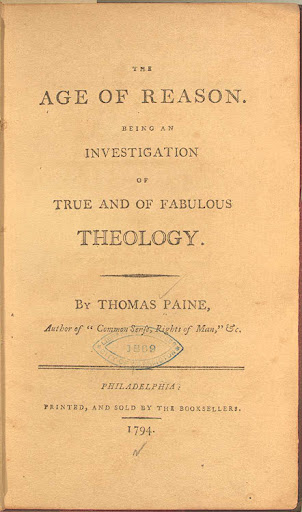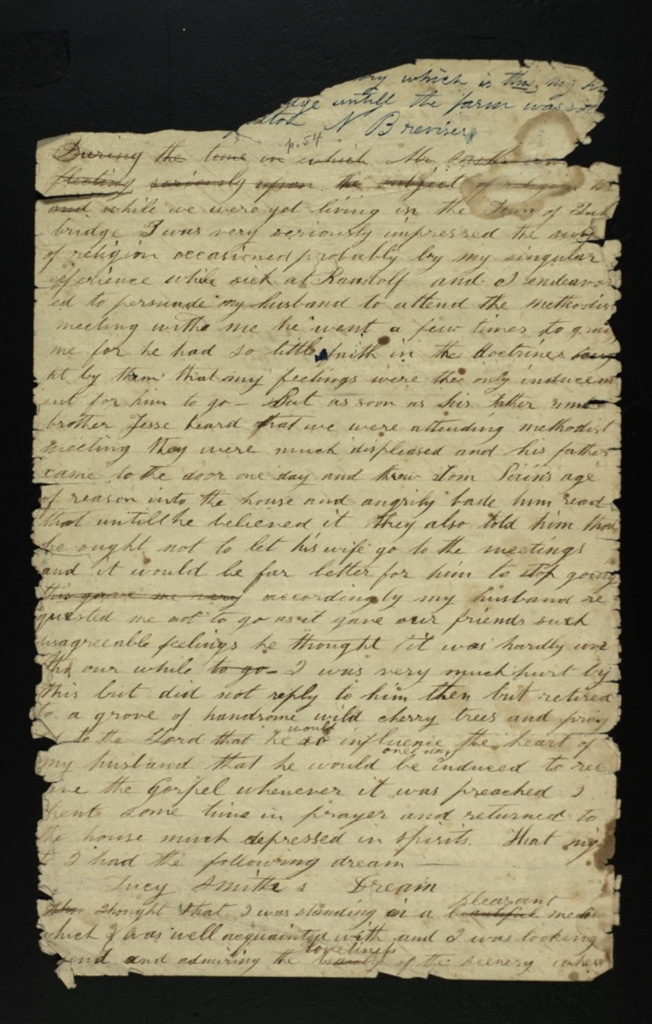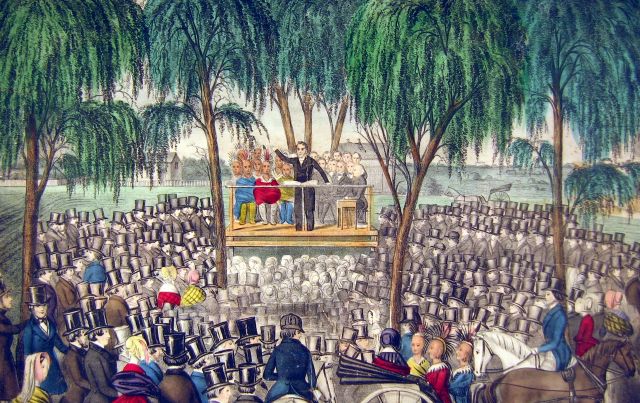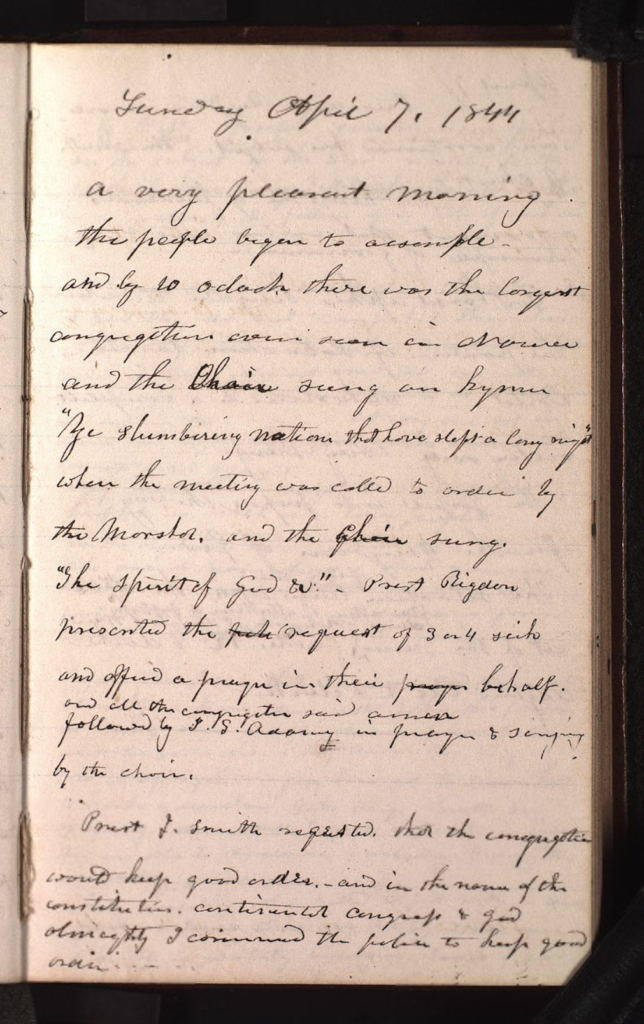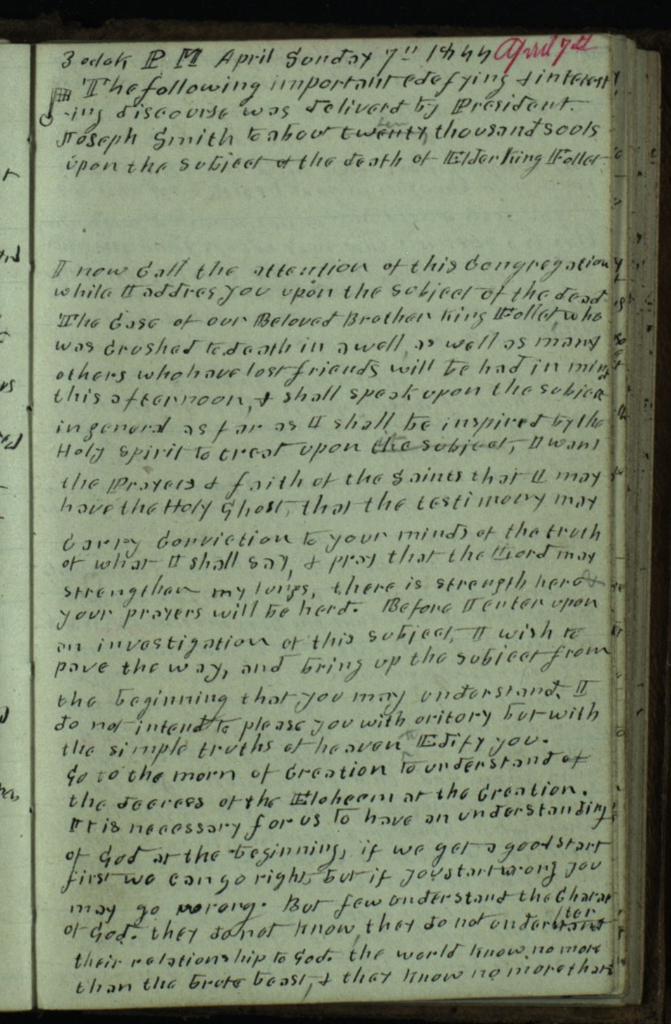Required Reading: First Vision Accounts
Optional Reading: Richard L. Bushman, “What Can We Learn from the First Vision”
Memorize and internalize concepts in bold typeface.
When the powers of sin assailing filled his soul with deep despair, Joseph Smith sought the God of love. His humble prayer was answered. He found the living, loving, God. So can you.
George Manwaring, a British convert and self-taught composer, was inspired by a painting of Joseph Smith’s first vision by the Danish artist C.C.A. Christensen. So Manwaring composed a hymn about it that begins like this:
Oh, how lovely was the morning!
Radiant beamed the sun above.
Bees were humming, sweet birds singing
Music ringing thru the grove,
When within the shady woodland
Joseph sought the God of love. . .
Humbly kneeling, sweet appleaing—
‘Twas the boy’s first uttered prayer—
We will read the accounts of Joseph Smith’s first vision together in class, and later lessons will introduce source criticism (how we know what we know) of them. This lesson shows how three lines from George Manwaring’s hymn go right to the heart of Joseph’s experience.
The powers of sin filled Joseph with deep despair
In 1832, Joseph wrote a brief autobiography including this passage about his early teens
“At about the age of twelve years my mind become seriously imprest with regard to the all importent concerns of for the well fare of my immortal Soul which led me to search ing the scriptures believeing as I was taught, that they contained the word of God thus applying myself to them and my intimate acquaintance with those of differant denominations led me to marvel excedingly for I discovered that <they did not adorn>instead of adorning their profession by a holy walk and Godly conversation agreeable to what I found contained in that sacred depository this was a grief to my Soul thus from the age of twelve years to fifteen I pondered many things in my heart concerning the sittuation of the world of mankind the contentions and divi[si]ons the wicke[d]ness and abominations and the darkness which pervaded the of the minds of mankind my mind become excedingly distressed for I become convicted of my sins . . . “
Have you ever wondered why Joseph Smith said that his “mind became somewhat partial to the Methodist sect, and I felt some desire to be united with them” (Joseph Smith-History 1:8)
Or why he told his mother after his first vision, “I have learned for myself that Presbyterianism is not true” (Joseph Smith-History 1:20)
Until I studied other Christian theologies and histories, Joseph’s words meant nothing to me. Now I realize that those two lines are enormously meaningful. They say so much about what Joseph was looking for. They reveal the terrible dilemma Joseph struggled to resolve. The nature of God is at stake in that dilemma. So is salvation. To get a sense of Joseph’s dilemma we will need a sampling of both Presbyterianism and of Methodism
As we learned in our last lesson, the Presbyterian God is sovereign. That’s the most important thing about Him. He is in control. He might decide to save you but he is much more likely to damn you. And there is nothing you, in your totally depraved fallenness, can do about it. His will is mysterious, arbitrary, sovereign. And he abhors you….

Remember the haunting line from the famous Jonathan Edwards sermon, “The God that holds you over the Pit of Hell, much as one holds a Spider, or some loathsome Insect, over the Fire, abhors you, and is dreadfully provoked; his Wrath towards you burns like Fire; he looks upon you as worthy of nothing else, but to be cast into the Fire . . . “

It’s overly simple to say that the Presbyterian God abhorred people and the Methodist God didn’t, but the contrast helps us see a difference that meant a lot to Joseph. Methodists emphasized that God so loved the world that He sent His Only Begotten Son, and people could choose to come to Christ and receive a gift of His grace. When they did they would be born again. A few would see visions, more would feel pure joy, and many would shout for joy. That’s what this image depicts:

Joseph Sought the God of Love
Now try to imagine what it was like to be Joseph. He knows he is sinful and needs Jesus Christ. He does not know whether (the Presbyterian) God had already damned him to eternal hell by his arbitrary sovereign will. As the heir of Adam’s fall, Joseph somehow deserved hell, though he did nothing to cause his own fall and there was nothing he could do to change it. Joseph didn’t like Presbyterianism but his teenage sinfulness lead him to think–even fear– it was probably true.
Joseph attended Methodist revival meetings where he was called to come to Christ. Everyone around him felt the power of God and Joseph said he “wanted to get Religion too wanted to feel & shout like the Rest but could feel nothing.”[1]
His family tradition told him that the scriptures and sound reason led to truth, but he faced a terrible conflict between his head and his heart. His heart had him hoping that Methodism (Arminian theology) was right, but he tried and tried and couldn’t produce any evidence to support that hope. He wanted to feel and shout, but felt nothing.
So his head led him to believe that Presbyterianism (Calvinist theology) must be right—but that’s an awful possibility and he didn’t want to conclude it was true if any better option was open.
He tells himself over and over that maybe they’re all wrong, but he doesn’t dare let that thought sink into his heart because he’s convicted of his sins and desperately in need of the Savior’s forgiveness (Joseph Smith-History 1:10, 18). He can’t figure out this dilemma. Then he experiences the epiphany that comes from reading James 1:5.
He realizes that he can ask of God, and he makes an early morning trip to the woods to ask in faith. In his 1838/39 Manuscript History, Joseph described it this way:
“In the midst of this war of words, and tumult of opinions, I often said to myself, what is to be done? Who of all these parties are right? Or are they all wrong together? and if any one of them be right which is it? And how shall I know it? While I was laboring under the extreme difficulties caused by the contests of these parties of religionists, I was one day reading the Epistle of James, First Chapter and fifth verse which reads, “If any of you lack wisdom, let him ask of God, that giveth to all men liberally and upbraideth not, and it shall be given him.[”] Never did any passage of scripture come with more power to the heart of man that this did at this time to mine. It seemed to enter with great force into every feeling of my heart. I reflected on it again and again, knowing that if any person needed wisdom from God, I did, for how to act I did not know and unless I could get more wisdom than I then had [I] would never know, for the teachers of religion of the different sects understood the same [p. 2] passage of Scripture so differently as <to> destroy all confidence in settling the question by an appeal to the Bible. At length I came to the conclusion that I must either remain in darkness and confusion or else I must do as James directs, that is, Ask of God. I at last came to the determination to ask of God, concluding that if he gave wisdom to them that lacked wisdom, and would give liberally and not upbraid, I might venture.”
Joseph’s Humble Prayer was Answered: He Saw the Living (Loving) God
In a November 1835 journal entry, Joseph’s scribe recorded this telling:
“being wrought up in my mind, respecting the subject of religion and looking upon <at> the different systems taught the children of men, I knew not who was right or who was wrong and concidering it of the first importance that I should be right, in matters that involved eternal consequences; being thus perplexed in mind I retired to the silent grove and bowd down before the Lord, under a realising sense that he had said (if the bible be true) ask and you shall receive knock and it shall be opened seek and you shall find and again, if any man lack wisdom let him ask of God who giveth to all men libarally and upbradeth not; information was what I most desired at this time, and with a fixed determination I to obtain it, I called upon the Lord for the first time, in the place above stated or in other words I made a fruitless attempt to pray, my toung seemed to be swolen in my mouth, so that I could not utter, I heard a noise behind me like some person walking towards me, <I> strove again to pray, but could not, the noise of walking seemed to draw nearer, I sprung up on my feet, and [p. 23] and looked around, but saw no person or thing that was calculated to produce the noise of walking, I kneeled again my mouth was opened and my toung liberated, and I called on the Lord in mighty prayer, a pillar of fire appeared above my head, it presently rested down upon my <me> head, and filled me with joy unspeakable, a personage appeard in the midst, of this pillar of flame which was spread all around, and yet nothing consumed, another personage soon appeard like unto the first, he said unto me thy sins are forgiven thee, he testifyed unto me that Jesus Christ is the son of God . . . “
When the powers of sin assailing filled his soul with deep despair, Joseph sought the God of love. His humble prayer was answered. He found the living, loving God.
Joseph recorded his testimony of this experience often. His earliest accounts emphasize his successful quest for God’s forgiveness.
When the power of sin has assailed my soul, I have also sought the living, loving God. My prayers have been answered less dramatically than Joseph’s but with the same redeeming love. I testify that Joseph sought and found the God of love. So can you.
So much is at stake over whether his testimony of this experience is true or not. Seekers should become the best informed analysts of Joseph’s vision accounts. So in class we will introduce the known accounts of Joseph Smith’s first vision and practice source criticism.

